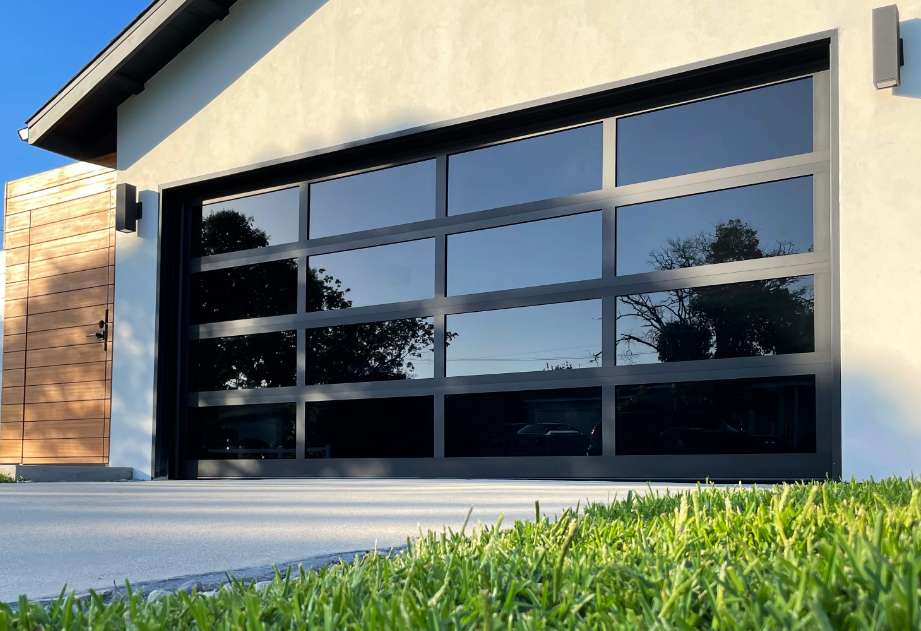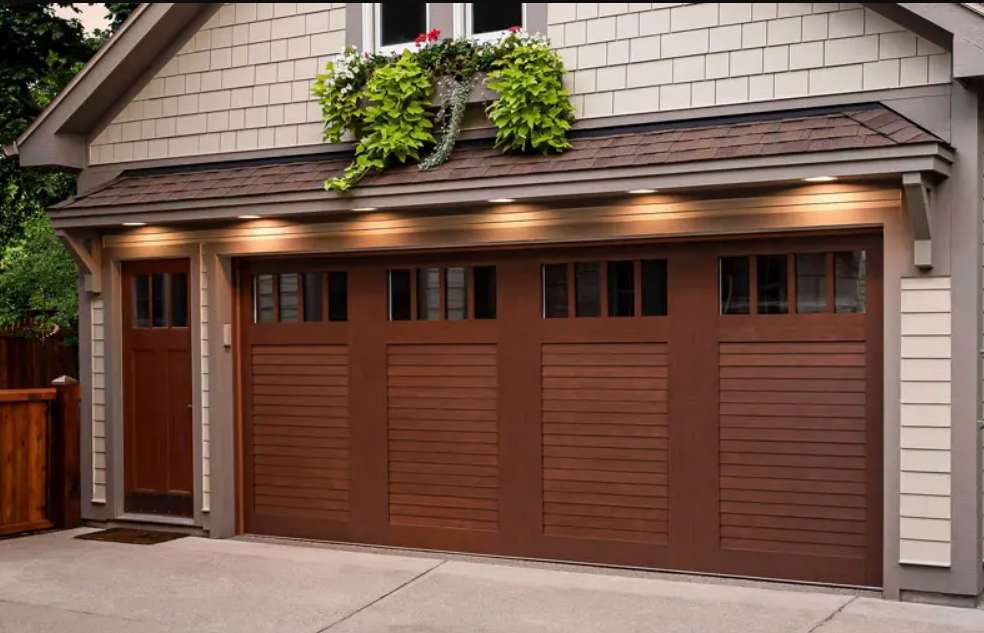If your garage door fails to operate smoothly, you could be dealing with spring issues. Your garage door springs are crucial in lifting and lowering the door so they’re one of the most important parts of your garage door system. But if they do break, there will be some costs and considerations to replacing them.
Thank you for reading this post, don't forget to subscribe!In this blog, we will explain some of the factors that will affect the cost of replacing a garage door spring. In this spring replacement guide, we will discuss how factors such as where you live and how long you want your garage door to last affect cost, the pros and cons of doing it yourself versus hiring a professional, the breakdown of how much professional garage door spring replacement costs, tips on finding the right technician and what’s involved in maintaining the springs.
What Factors Affect The Cost of Replacing Garage Door Springs?
The price for replacing garage door springs can vary significantly depending on a few key factors. Here’s a closer look at some factors affecting pricing:
The Type of Spring
There are two primary garage door spring types, and the springs you have determine the replacement cost.
These are the most popular and usually costlier to replace. They are mounted horizontally above the garage door, and have a longer life span.
Extension springs: Are installed on the side of the door thresholds and stretch when the door is used. They tend to be less expensive but more dangerous if they shatter.
The Dimensions and Weight of Your Garage Door
If your garage doors are heavier or bigger, they may also need specific types of springs, which could be more expensive than general ones. Custom or oversized garage doors may require springs that are more difficult to locate.
Labor Costs
By the time you consider hiring a professional, labor starts to play a big role. The prices of labor will depend on your location and the technician’s skill level, and typically range between $75 and $150 per hour.
Location
Geography is a factor in pricing as well. Labor costs are also likely to be more expensive in the city or anywhere with a higher cost of living than in smaller communities or towns.
Urgency
Emergency replacements or weekend/holiday service generally costs more. If your garage door is a critical component of your home security, making this repair is going to require a significant improvement on the service based on the service you’ve chose and where you live, limited by contractors available in your area.
DIY vs Professional Replacement Football fans will definitely be interested in playing the new Madden NFL game, but I’m intrigued to find out how its virtual reality gameplay is.
Do It Yourself, or Not When it comes to garage door spring replacement, you have two choices: Call a pro to do the work, or do it yourself. But which is the stronger choice?
The DIY Route
Pros
Cost savings: You have to cover the cost of the spring and any special tools, but you could save hundreds on labor costs.
Immediate response: You don’t need to wait for a technician.
Cons
Safety hazards: Garage door springs are under extreme tension. It may cause fatal harm if not used properly.
Lack of skill: If you don’t know what you’re doing, you might find it difficult to install them properly which can lead to more damage.
Professional Replacement
Pros
Safety first: Trained technicians have the skills and equipment to do the job safely.
Warranty: You will find that many experts offer guarantees so you’ll have complete peace of mind.
No trouble: A professional will get the job done quickly and properly.
Cons
More expensive: Labor costs can add up.
Schedule: Plan for the next available time slot you can score.

How Much Does It Cost To Replace Garage Door Springs?
How much can you expect to pay for garage door spring replacement? Here is a cost breakdown for better understanding.
Spring Costs
- Torsion Springs – $50 to $200 per spring
- Extension Springs: $15–$50 per spring
Additional Costs
- Labour Rates: $75 – $150 hourly 3.
- Fee for Services: Some will ask for a fee, usually about $50–$100.
Emergency Fees: If the situation is critical or you need assistance outside normal hours, anticipate a $50–$150 surcharge in addition to the base price.
Tools (for DIY): If you decide to do it yourself, you might have to buy tools, such as winding bars or a spring tensioning kit (which could run $20 to $50).
Estimate of Total Cost (Professional)
- Extension Springs: $150–$300
- Torsion Springs: $200–$500
Note: for custom or oversized doors, there may be an additional cost in special parts.
Choosing a Professional
It’s important to take the necessary steps to have the job done safely and by a qualified professional. Here’s some advice on how you can find a good technician:
Look for Certifications
Select a technician who is certified through an organization such as the International Door Association (IDA) or Institute of Door Dealer Education and Accreditation (IDEA). A person who is certified will probably have the skills and know how you’re looking for.
Check Reviews and References
Check online reviews, or ask friends or family for referrals. A reliable and reputable technician assures you peace of mind.
Get Multiple Quotes
The first estimate is not the final price. Trying to collect at least 2–3 quotes so you can compare the pricing and the services.
Ask About Warranties
Most pros provide warranties covering parts and labor. Be sure to know what’s in it before you carry on.
Maintaining Springs to Increase Their Spring Life
Keeping up with maintenance can extend the life of your garage door springs while saving you money and unwanted tasks.
Lubricate Regularly
Garage door springs need lubrication, ideally in the form of silicone spray or garage door lubricants, every three months. This eliminates friction and avoids corrosion.
Balance Your Garage Door
Misaligning A door when it is not balanced causes stress on the springs. Test the balance by removing the opener and lifting the door halfway up. If it does not remain put, it can be unbalanced.
Inspect for Wear and Tear
Inspect the springs for rust, gaps, or any obvious damage. Dealing with the issues early on can prevent the whole thing from falling apart.
Limit Strain
Don’t burden your garage door with unnecessary weight or allow it to be overworked. For example, heavy weatherstripping or extra garage door insulation may cause strain.
When Is It Time to Replace the Springs on Your Garage Door?
Garage door springs may not be the first thing that comes to mind when considering home maintenance and repair but they are critical for both convenience and safety.
If your garage door doesn’t slide up and down smoothly, or if you see a gap in the springs, it’s probably time to have them replaced. Sure, it’s less expensive to DIY, but having a skilled specialist handle the work will guarantee it lasts longer and is done safely.
If you aren’t sure what the job entails or require help, contact a reliable garage door service now. One phone call is all it takes to have a smooth and secure garage door.



